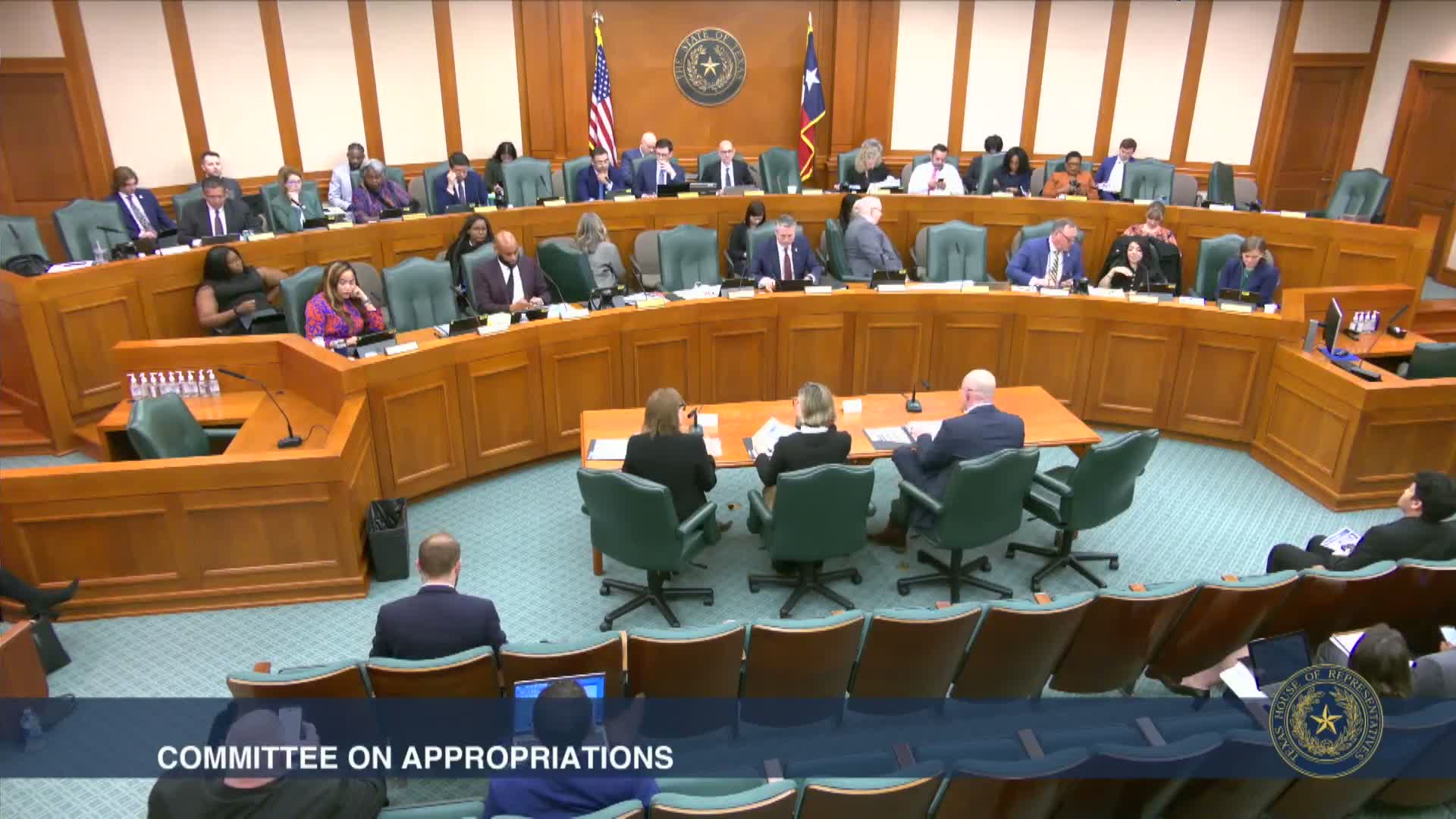HHSC briefed committee on Medicaid program, HB12 postpartum extension and program drivers
Get AI-powered insights, summaries, and transcripts
Subscribe
Summary
HHSC Deputy Medicaid Director Valerie Mays told the House Appropriations Committee Medicaid serves about 4.3 million Texans, outlined eligibility bands and delivery models, and said HB12’s 12‑month postpartum coverage became effective March 1, 2024.
Valerie Mays, Deputy State Medicaid Director at the Health and Human Services Commission, gave the committee a concise primer on Medicaid operations, eligibility and recent policy changes, including the implementation of House Bill 12, which extended postpartum Medicaid coverage to 12 months.
Who Medicaid serves Mays said Texas Medicaid serves about 4.3 million people each month and funds many programs, including the Foundation School Program links via CHIP for children. She reviewed eligibility categories (children, parents/caretakers, pregnant and postpartum women, older adults, people with disabilities), income‑eligibility thresholds and the distinction between entitlement (Medicaid) and the CHIP program (not an entitlement).
HB12 and postpartum coverage Mays explained HB12 required HHSC to provide 12 months of postpartum coverage to women who were eligible during pregnancy; the state plan amendment received federal approval and the benefit became effective March 1, 2024. She said the women retain the same full package of Medicaid benefits during the extended postpartum period, and that the legislature should note savings and caseload interactions as the change shifts women to ongoing Medicaid coverage instead of the state’s separate women’s health program in some cases.
Service delivery and spending drivers Mays described managed care as the primary delivery model (about 97% of Medicaid enrollees) and noted the state also has fee‑for‑service components. She described STAR, STAR Kids, STAR Health, and STAR+PLUS program lines and said dental benefits are provided for children and CHIP enrollees under age 20. The LBB and agencies provided an overview of HB1 funding and contingency items tied to Medicaid (for example, Medicaid/CHIP projected caseload growth in HB1).
Audit and supplemental notes Mays told the committee that projected fiscal needs remain sensitive to caseload and policy choices and said the agency does not expect to need a Medicaid supplemental appropriation for 2024–25, noting higher‑than‑expected managed‑care rebate and revenue receipts helped reduce supplemental pressures. She also reminded members of federal funding volatility and the lag in claims data, which can obscure short‑term spending trends.
Ending Mays asked the committee to keep the program’s complexities in mind as it considers HB1 contingencies, and she offered to provide more granular caseload and cost data for the committee’s review.
